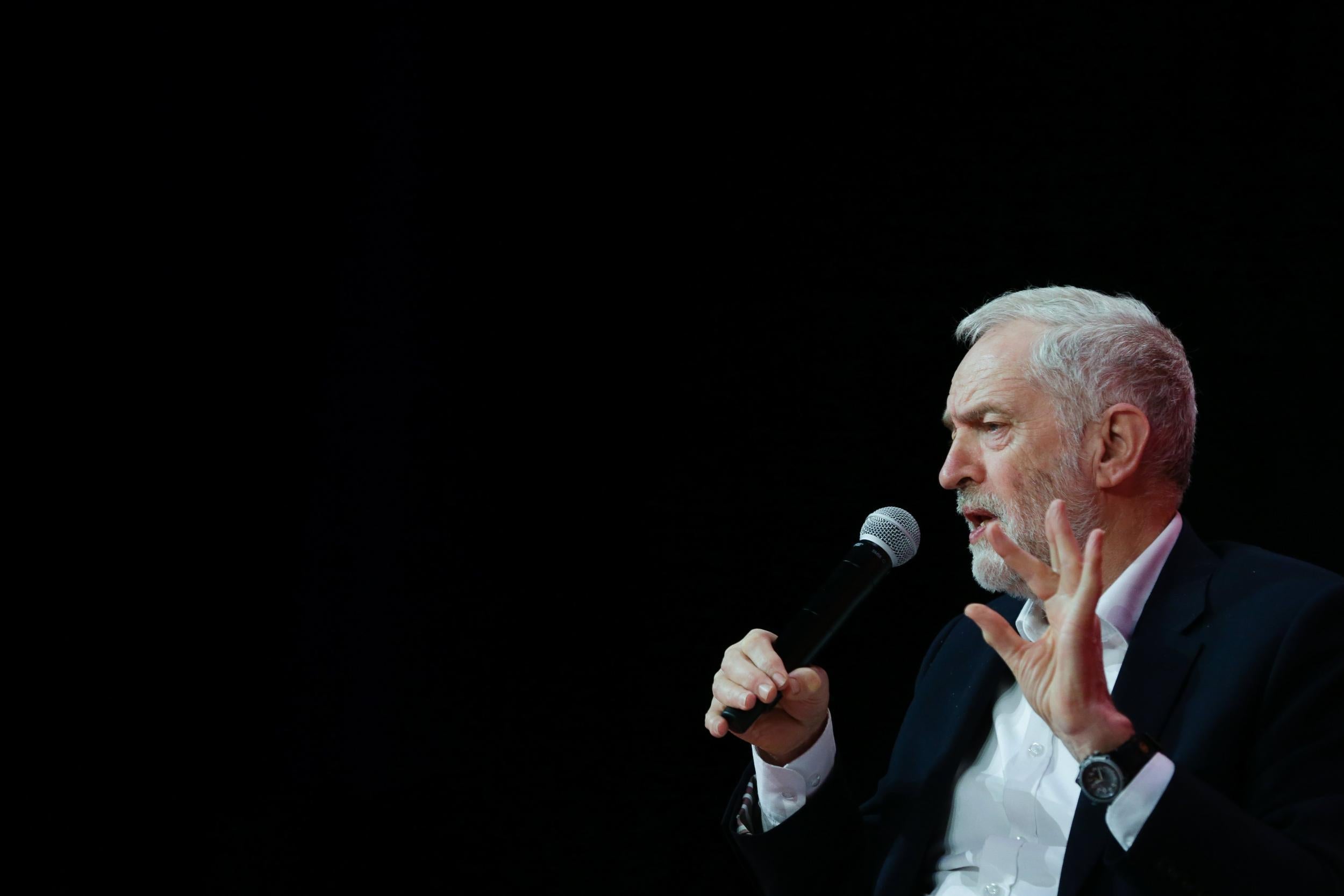Jeremy Corbyn is heading toward a big change in Labour's Brexit policy – it's time to go the whole hog
Labour could become the party that puts the national economic interest before narrow party interests, while the Tories do the opposite. Voters would notice


Jeremy Corbyn is on a journey when it comes to Brexit. The reluctant Remainer of the referendum campaign has moved a long way since the June election, when Labour’s ambiguous position won votes from Remainers and Leavers alike.
Three weeks later, Corbyn sacked three frontbenchers for backing a Commons amendment saying the UK should remain in the single market and customs union. Last weekend, Labour’s dance of the seven veils towards adopting such a policy continued. Sir Keir Starmer, the Shadow Brexit Secretary, said Labour wanted “full participation” in the single market and the “full benefits” of the customs union. It would consider paying for market access and the “easy movement” of people, although I thought that sounded a bit like an advert for easyJet.
Starmer has already steered Labour to urging membership of both structures during a transitional phase lasting up to four years. It appears to be edging closer towards making that permanent. Labour’s differences on Brexit have narrowed. Even John McDonnell, the Shadow Chancellor and, like Corbyn, a long-standing Eurosceptic, now suggests Labour could stay in “a” reformed single market and “a” customs union.

The unmistakable direction of travel has cheered pro-European Labour MPs. It would certainly be clearer and more coherent than Labour’s inconsistent nods and winks, which allow Theresa May to claim that the opposition has had 12 different Brexit policies. That is a bit rich when her own position on the UK’s long-term relationship with the EU is so opaque.
True, Labour is not in power, and the luxury of opposition gives it some wriggle room. Yet the party’s pro-EU wing believes that a commitment to permanent single market and customs union membership would win over more Remain voters. It could also prevent a Liberal Democrat revival if the public mood turns against Brexit. For now, Vince Cable can accuse Labour of conniving in May’s “extreme Brexit”.
Team Corbyn is not so sure, and not convinced he should complete his journey. It suspects Labour’s Remain vote peaked in June, and that such a pledge could alienate older working class Leave voters who stuck with the party this year after hearing that Corbyn would honour the referendum decision and end free movement.
Corbyn allies also worry that an unequivocal commitment to the single market would limit a Labour government’s room for manoeuvre. State aid for companies is one concern. Another is free movement of capital, one of the EU’s “four freedoms”, which gets less attention than the free movement of labour. Capital controls are one option for a Labour government to prevent a run on the pound (which McDonnell admits his team has war-gamed).
Labour’s Europhiles regard such ideas with horror. As one put it: “Are we really saying we won’t stay in the single market to avoid wrecking the economy so that we can wreck the economy with capital controls?”
To his credit, Corbyn is being pragmatic rather than dogmatic on Brexit. He is right to argue that Parliament should not write into law the exit date of 29 March 2019, which the Government will urge MPs to back next week. It would be crazy to close off the chance of securing a withdrawal agreement by extending the negotiations by a few weeks or months.
Corbyn should now go further, and for the full monty on the single market and customs union. As its policy stands, Labour wills the ends of protecting jobs and investment but not the means. It wants the benefits of the EU structures without being in them – the exact same “have cake and eat it” strategy May pursues. She will have to make some choices soon. So why doesn’t Labour steal a march by adopting a clear, coherent policy first? “Constructive ambiguity” and sending different messages to different groups of voters will have its limits as a picture of what Brexit really does mean emerges in 2018.
The Tory unity over the deal May struck in Brussels last Friday is fragile but should serve as a warning to Labour. Corbyn’s best chance of the early general election he once hoped to see before Christmas remains a Tory implosion over Brexit. But he cannot bank on it; the Tories are desperate to delay the election until the last moment in 2022. The same survival instinct they show following May’s Brexit breakthrough means they may well succeed, which would be bad news for Corbyn.
Labour could enhance its economic credibility for a post-Brexit election by declaring now the UK should remain permanently in the single market and a customs union. It should do so. Labour would then be the party which puts the national economic interest before narrow party interests, while the Tories do the opposite. The voters would notice.
Join our commenting forum
Join thought-provoking conversations, follow other Independent readers and see their replies
Comments
Bookmark popover
Removed from bookmarks